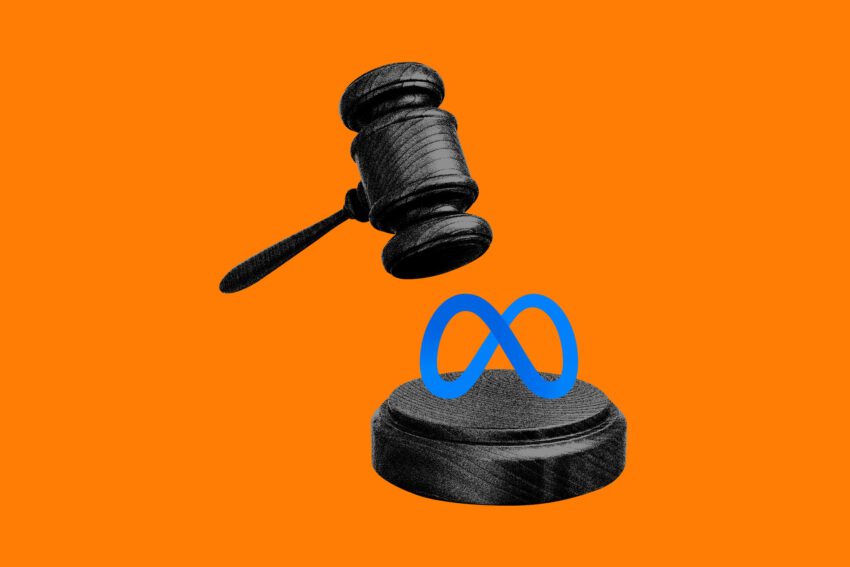
meta is not a monopolist judge rules Meta has emerged victorious in a pivotal antitrust case against the Federal Trade Commission (FTC), as a federal judge ruled that the company does not hold a monopoly in the social media market.
meta is not a monopolist judge rules
Overview of the Case
On Tuesday, U.S. District Court Judge James Boasberg delivered a significant ruling, stating that Meta has not unfairly dominated the market for “personal social networking.” This category encompasses a narrow range of social media applications, including Meta’s flagship platforms, Facebook and Instagram, as well as competitors like Snapchat. The ruling is particularly notable as it allows Meta to retain its acquisitions of Instagram and WhatsApp without immediate demands for divestiture, a relief for the company amid ongoing scrutiny from regulators.
Judge Boasberg’s Rationale
In his decision, Judge Boasberg emphasized the challenges the FTC faced in defining the relevant market and proving that Meta maintained an illegal monopoly. He noted that the social media landscape has evolved dramatically since the FTC first initiated its antitrust suit against Meta. The rise of TikTok, in particular, has transformed the competitive dynamics of the industry. “The landscape that existed only five years ago when the Federal Trade Commission brought this antitrust suit has changed markedly,” Boasberg stated. He highlighted that the once-clear distinctions between different types of social media applications have become blurred.
Competition in the Social Media Landscape
The FTC’s argument centered on the claim that Meta had maintained illegal monopoly power by acquiring emerging competitors like Instagram and WhatsApp, which the agency believed could pose a threat to its dominance. However, Judge Boasberg pointed out that the FTC struggled to demonstrate that Meta still held an illegal monopoly in light of the rapidly changing social media environment. He noted that the government needed to prove current or imminent illegal monopolization, rather than merely relying on historical dominance.
“With apps surging and receding, chasing one craze and moving on from others, and adding new features with each passing year, the FTC has understandably struggled to fix the boundaries of Meta’s product market,” Boasberg wrote. He further criticized the FTC for insisting that Meta competes only with its traditional rivals from the past decade, stating that the agency failed to account for the current competitive landscape.
Interchangeability of Apps
Throughout the trial, the FTC attempted to argue that users engage with Meta’s apps for different purposes than they do with video and broadcast-focused platforms like YouTube or TikTok. However, Judge Boasberg appeared unconvinced by this argument. He stated, “Meta’s apps are reasonably interchangeable with TikTok and YouTube.” This assertion was supported by evidence showing that users flocked to Meta’s platforms during a brief blackout of TikTok in the U.S., indicating that users readily substitute Meta’s apps for TikTok when necessary.
Debate Over YouTube’s Role
While Judge Boasberg acknowledged that TikTok’s inclusion in the personal social networking market was clear-cut, he found YouTube’s role to be “more debatable.” This distinction underscores the complexities of the case and the evolving nature of social media competition. The timing of the case also played a crucial role in the outcome; Boasberg noted that even if he believed YouTube was not an appropriate substitute for Meta’s offerings, the presence of TikTok fundamentally altered the competitive landscape.
Historical Context and Legal Precedents
Judge Boasberg had multiple opportunities to dismiss the case before it reached trial. Initially, he threw out the FTC’s case but later allowed the agency to refile. Throughout the years of litigation, both Meta’s applications and its competitors have undergone significant changes. Boasberg remarked, “The Court’s two Opinions on motions to dismiss did not even mention the word ‘TikTok.’ Today, that app holds center stage as Meta’s fiercest rival.” This observation highlights the dynamic nature of the tech industry and the challenges regulators face in keeping pace with rapid innovation.
Reactions from Stakeholders
In response to the ruling, Meta spokesperson Chris Sgro issued a statement emphasizing the competitive nature of the social media landscape. “The Court’s decision today recognizes that Meta faces fierce competition,” Sgro said. He further asserted that Meta’s products are beneficial for both individuals and businesses, showcasing American innovation and economic growth. Sgro expressed optimism about continuing to collaborate with the Administration and investing in the U.S. economy.
The FTC, on the other hand, did not provide an immediate comment following the ruling. The agency’s mixed record in recent antitrust cases against major tech companies raises questions about its future strategies and priorities. The FTC’s monopolization case against Meta was first filed during the Trump administration, with an amended complaint submitted during the Biden administration. The trial took place earlier this year, reflecting the ongoing political and regulatory scrutiny of large tech firms.
Implications for Future Antitrust Actions
This ruling marks a significant setback for the FTC, representing its second major antitrust loss against Meta. Previously, a court allowed Meta to complete its acquisition of the virtual reality fitness startup Within, despite the FTC’s challenge, and the agency ultimately chose not to appeal that decision. The mixed outcomes in these cases suggest that the government may need to reassess its approach to antitrust enforcement in the technology sector.
The government’s recent record in tech monopoly cases is varied. While the Justice Department has successfully pursued monopolization cases against Google’s search and ad tech businesses, a judge did not grant most of the remedies the agency sought in the search case. The remedies phase for the ad tech case is currently ongoing, with closing arguments scheduled for later this week. These developments indicate that while the government is willing to challenge tech giants, the outcomes are far from guaranteed.
Looking Ahead
As the tech landscape continues to evolve, the implications of this ruling extend beyond Meta. The decision may influence how regulators approach future antitrust cases against other major tech companies. The rapid rise of new platforms, such as TikTok, underscores the need for regulators to adapt their strategies to account for the dynamic nature of competition in the digital age.
Moreover, this ruling may embolden other tech companies facing similar scrutiny, as it establishes a precedent that highlights the importance of demonstrating current market dynamics rather than relying solely on historical dominance. As competition in the tech industry becomes increasingly fierce, the outcomes of future antitrust cases will likely hinge on the ability of regulators to accurately define relevant markets and assess the competitive landscape.
Conclusion
The ruling in favor of Meta represents a significant moment in the ongoing discourse surrounding antitrust regulation in the technology sector. As the landscape continues to shift, both regulators and companies will need to navigate the complexities of competition and innovation. The outcome of this case serves as a reminder of the challenges that lie ahead for both the FTC and other regulatory bodies as they seek to ensure fair competition in an ever-evolving market.
Source: Original report
Was this helpful?
Last Modified: November 19, 2025 at 12:42 am
1 views















